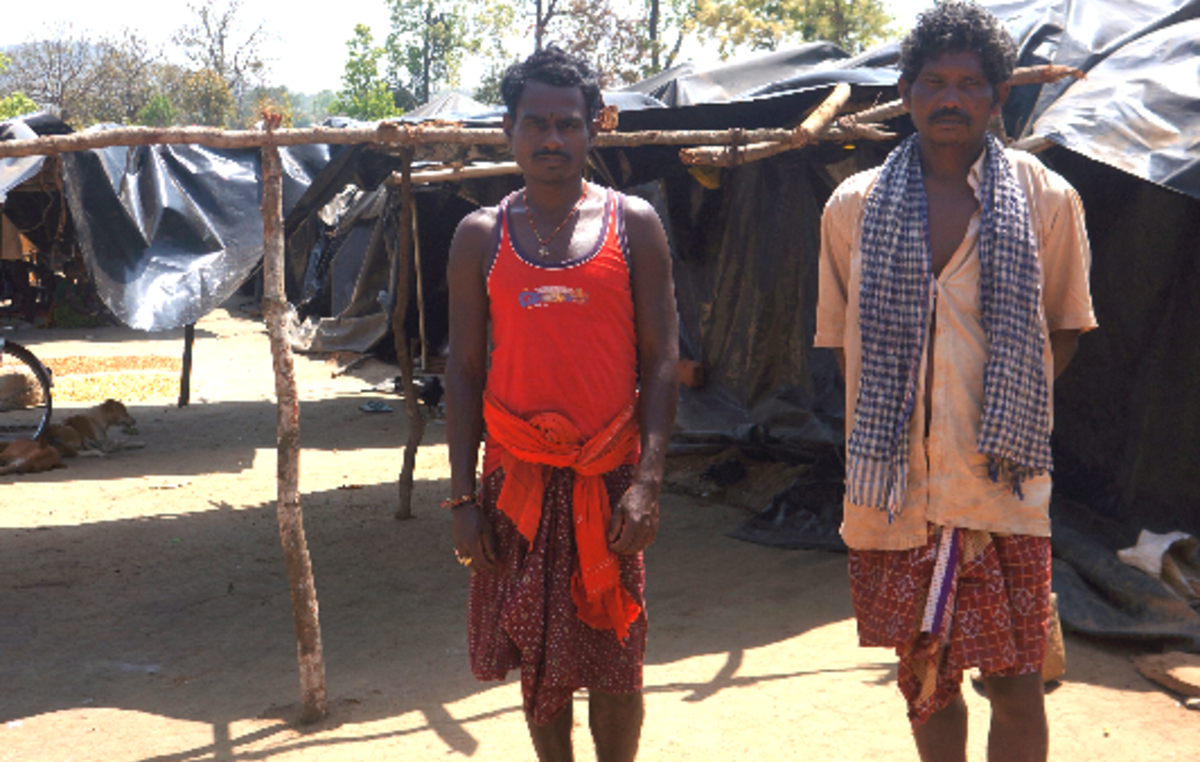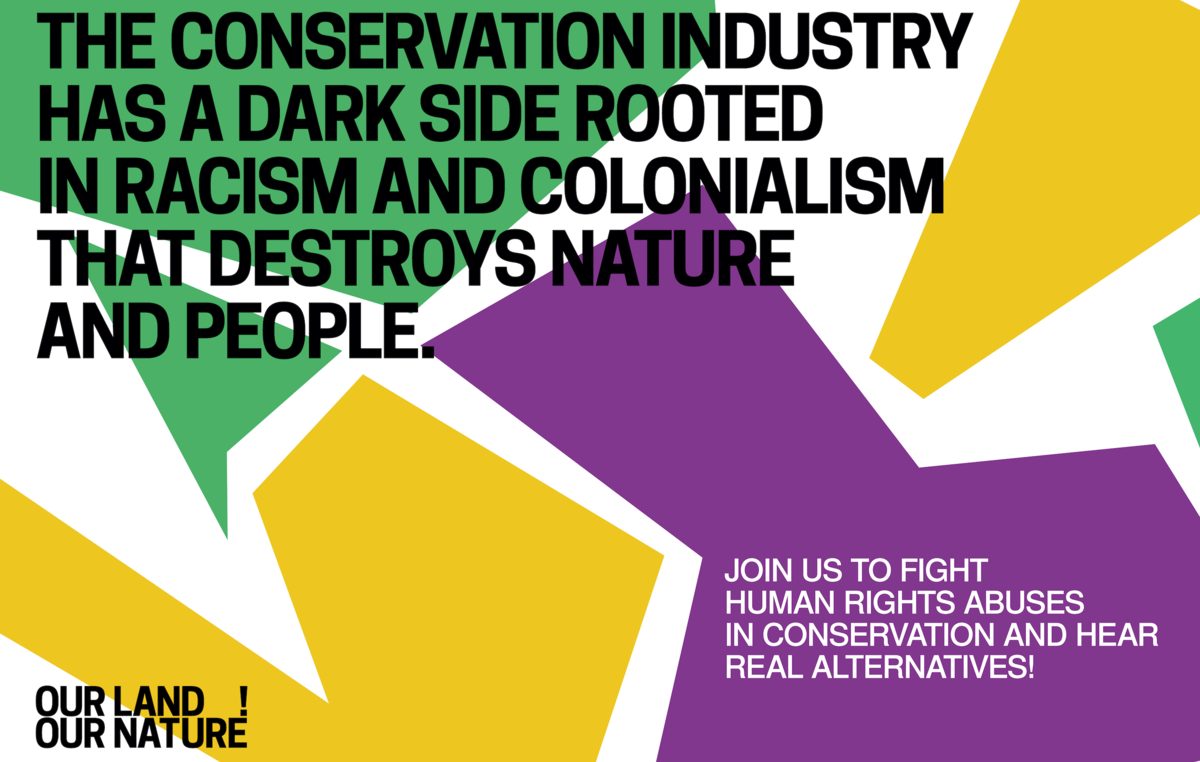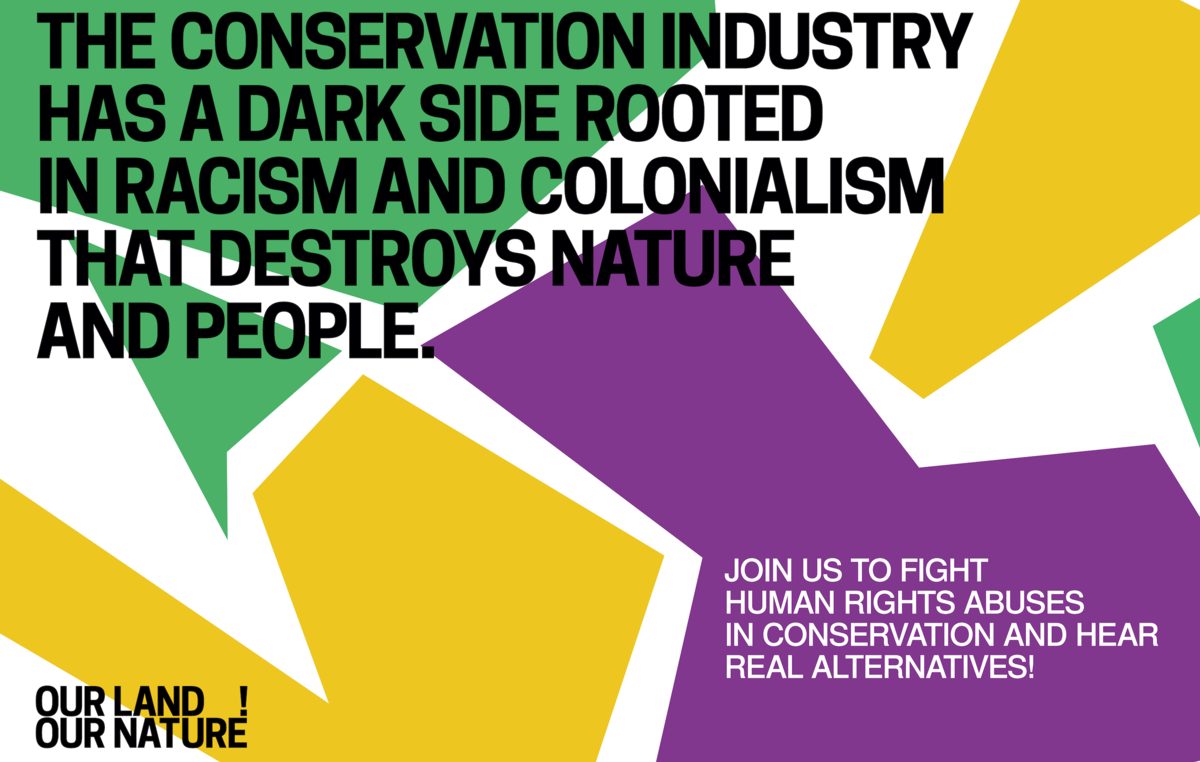This story first appeared in Survival.

These Khadia men were thrown off their land after it was turned into a tiger reserve. They lived for months under plastic sheets. Millions more face this fate if the 30% plan goes ahead.
© Survival International
Participants in the world’s first Congress to decolonize conservation have released a manifesto calling for a total halt to new Protected Areas which exclude Indigenous and local communities.
The “Marseille Manifesto: a people’s manifesto for the future of conservation” has been released today by many Indigenous and non-Indigenous activists and experts who gathered for last month’s ground-breaking “Our Land Our Nature” congress.
They also demand:
- that governments “fully respect, protect and uphold Indigenous peoples’ land and forest rights, respect collective customary land and forest use by local communities, to ensure protection of that land in accordance with their wishes” as the primary means of protecting the world’s biodiversity
- “Governments and conservation organisations must acknowledge the huge toll that strictly protected conservation areas have taken on the lands, livelihoods and rights of many communities worldwide; they must make concrete plans for reparations of past wrongs, including through transferring control back to the historical and local guardians”
- “High income countries… must cease funding conservation programmes which destroy local people and livelihoods, including by failures of FPIC, irrespective of whether this is intentional or not.”
The manifesto calls for “a conservation model that fights against the real causes of environmental destruction and is prepared to tackle those most responsible: overconsumption and exploitation of resources led by the Global North and its corporations.”
The demand for a radical change to the current model of conservation has grown louder in recent months. The UN’s Special Rapporteur on Human Rights and the Environment released a strongly-worded policy brief in August, arguing that achieving environmental goals “demands a dramatic departure from ‘conservation as usual’." His brief calls instead for a radically different, rights-based approach.
Many organizations and institutions, however, claim to endorse these calls while simultaneously promoting aggressive “fortress conservation” projects. The European Commission, for example, talks in its Biodiversity Strategy of “strengthen[ing] the links between biodiversity protection and human rights … and the role of indigenous peoples and local communities” – but continues to fund conservation projects in Africa that exclude them.
Likewise, 150 NGOs recently published an open letter calling on world leaders to put human rights at the centre of environmental policy – but the group included WWF, whose “secret war” of funding “vicious paramilitary forces” has been the subject of multiple media exposés and human rights investigations.
Fiore Longo, head of Survival’s Decolonize Conservation campaign, said today: “Most governments and NGOs these days are good at producing nice-sounding rhetoric about respecting Indigenous rights. But the same people are promoting a massive drive to create new Protected Areas on Indigenous lands as part of the 30×30 plan that constitutes the biggest land grab in world history.
“We can see the same pretence in calls for Nature-Based Solutions to climate change. These are really just a new spin on what used to be called carbon offsets. They’ll allow Indigenous lands to be bought and sold, in order to permit the world’s most polluting companies to carry on polluting.
“Only the full recognition of Indigenous peoples’ land ownership rights will prevent them from continuing to be the sacrificial victims of fortress conservation and Nature-Based Solutions. It’s also a key step in addressing the biodiversity and climate change crises.”

‘Our Land, Our Nature’. The conservation industry has a dark side rooted in racism and colonialism that destroys nature and people.
© Survival
